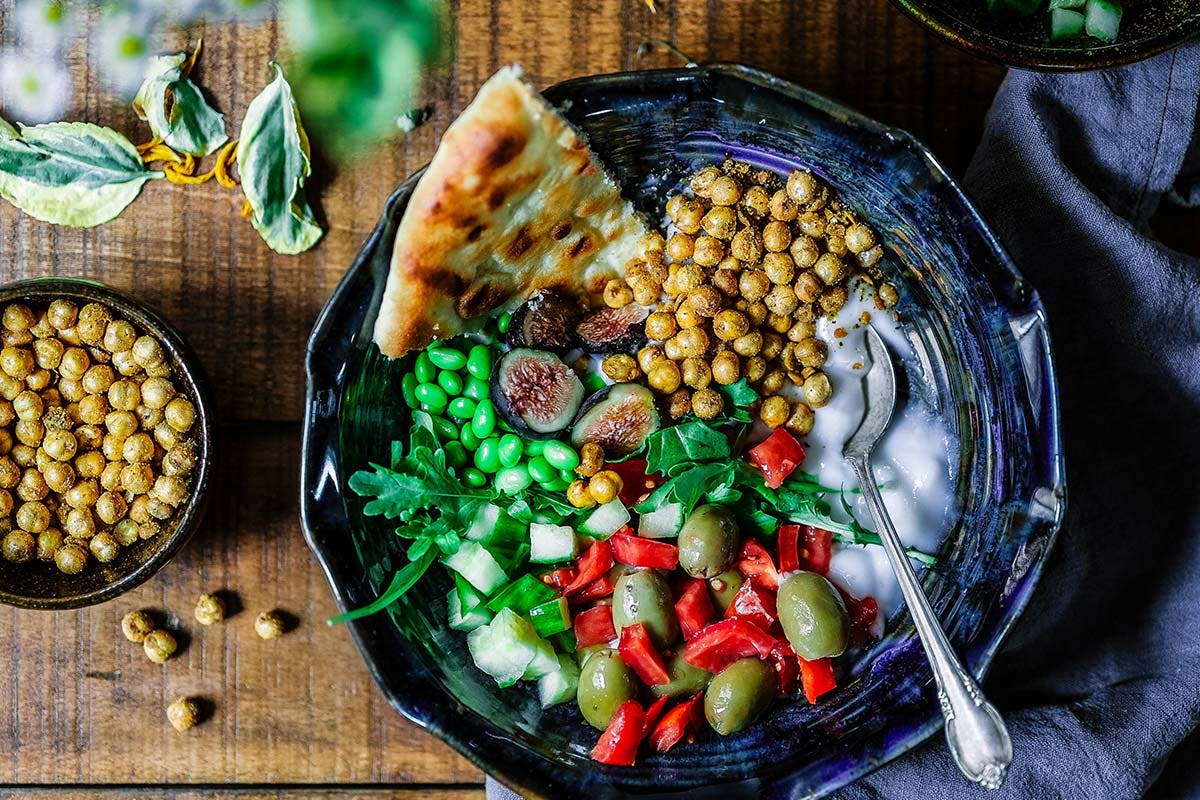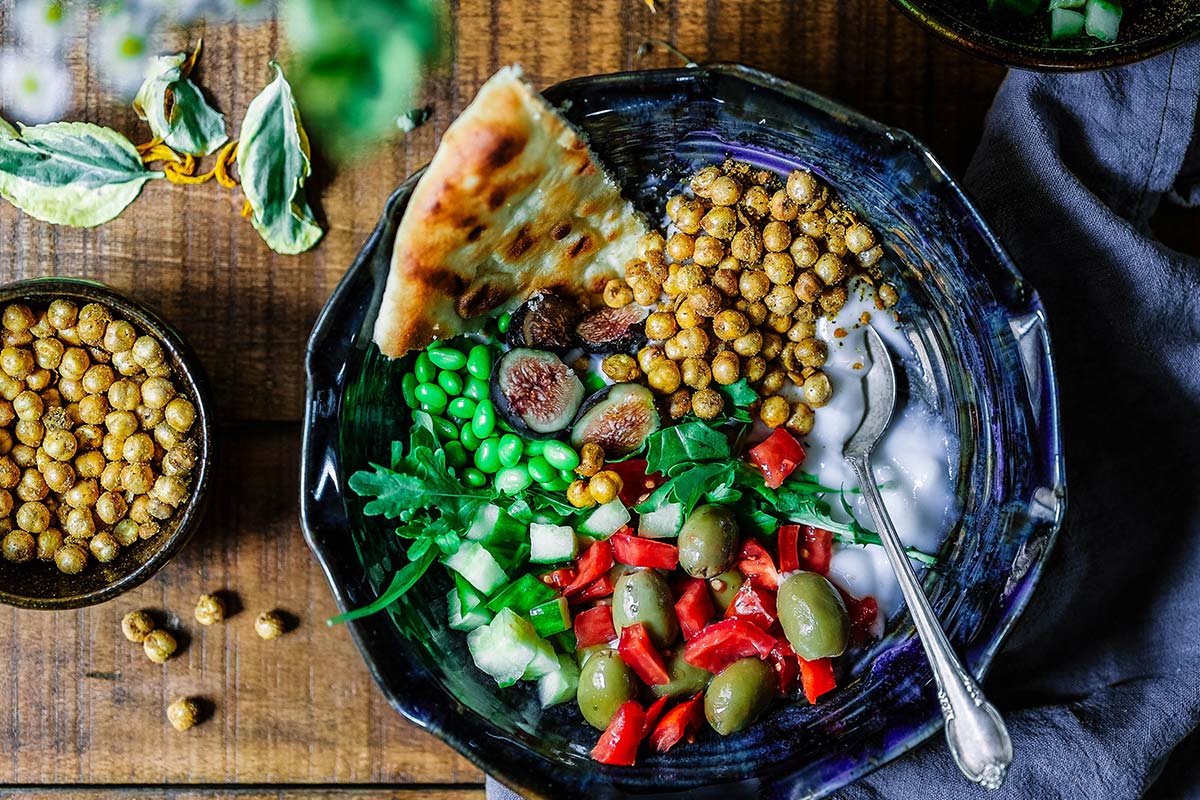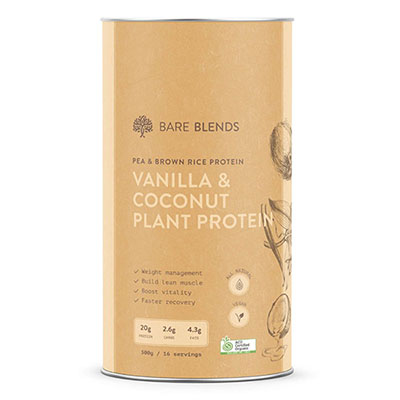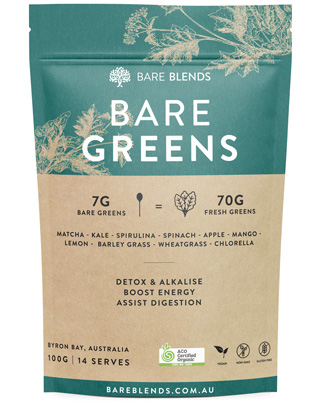Vegan Nutrition Part 2: Essential Nutrients And What To Supplement
If you’re following a plant-based diet, it’s helpful to know which nutrients you may need to supplement to function as your healthiest self.

Bare Blends
2020-04-08

If you’re following a plant-based diet, it’s helpful to know which nutrients you may need to supplement to function as your healthiest self.
In our last blog, Vegan Nutrition Part 1: Fake Meat And Things To Avoid, we discussed the dangers of some of the ingredients that are commonly found in vegan products. There are however, many vegan proteins that we do endorse that are safe to include into your daily diet, and provide excellent nutrition.
Important nutrients for vegan diets
Protein
Protein is essential for the human body. It is a major energy source and it is responsible for everything from building tissues, boosting immunity, and making your hair and nails strong and shiny. Although enough protein can be obtained from plant-based diets, it’s important to be aware than vegan and vegetarians may need to eat more protein than meat-eaters do, because plant-based protein has lower digestibility than animal protein.
Vitamin B12
Vitamin B12 is mainly found in animal products, which is why vegans and vegetarians may develop a deficiency. B12 deficiency can cause anaemia, as well as depression, confusion, and memory problems. While whole foods are the best source of this vitamin, supplements can assure that you’re getting the daily recommended amount, which is 2.4 micrograms per day.
Iron
The human body absorbs two to three times more iron from animal sources than from plant sources, so people on plant-based diets should be mindful that they’re getting enough iron to avoid becoming deficient. Plant-based sources of iron include grains, beans, avocado, cooked spinach, baked potato, legumes, and tofu.
Calcium
A well balanced vegan diet won’t cause calcium deficiency, but a restrictive vegan diet (such as one heavy in simple carbs and sugar) will. Eating a variety of nutrients and green vegetables should suffice to meet your daily requirements.
Omega-3
It can be challenging for any person to meet their omega-3 needs without the addition of fish to their diet. For vegans, it’s important to eat a good amount of foods that are rich in ALA omega-3s, which are converted in the body to EPA and DHA - nutrients that are essential for brain function and health. Plant-based sources of ALA omega-3s include foods chia seeds, hemp seeds, algae, walnuts and edamame.

Vegan protein sources that we endorse
Tempeh
Although made from soy, tempeh is much healthier than other soy products, including tofu. As well as being less processed than tofu, tempeh is also fermented, which makes it much easier to digest. Tempeh is also very nutritious, containing vitamin B12, as well as fibre, iron, and protein.
Chia seeds
Chia seeds are a complete protein source that is very high in nutrients, including omega-3 ALA, manganese and minerals, as well as fibre and calcium. Very versatile, chia seeds can be used in many sweet and savoury recipes to boost the protein and nutrients.
Brown rice protein
Brown rice protein powder is a complete source of protein which is easily digestible and has very low potential for allergic response. We recommend looking for a certified organic source.
Pea protein
Like brown rice protein, pea protein is a protein source that’s very easily digestible and hypoallergenic. Pea protein contains all nine of the essential amino acids, and is also beneficial for heart health and kidney function.
Hemp - protein and seeds
Hemp seeds contain protein, magnesium, iron, and both omega-3 and omega-6 fatty acids. They’re powerful little seeds with neuroprotective and anti-inflammatory benefits.
Nuts
Nuts are a great source of both protein and healthy fats. Peanuts, for example, contain over 25g of protein per 100g.
Why is it important to supplement?
Unfortunately, nutrient deficiencies are common among those who follow a plant-based diet. Common deficiencies include anaemia, vitamin B12 deficiencies, calcium and vitamin D deficits. However, vegans can certainly avoid these issues if appropriate food choices are made. This means eating healthy whole foods rather than ‘junk foods’ with no nutritional value, and of course, supplementing where necessary.
According to The Natural Nutritionist, priority needs to be placed on nutrient density and variation. On a plant-based diet, the importance of which nutrients you consume grows significantly. It’s the perfect opportunity to think outside the box and explore all of the wonderful plant-based foods that the earth has to offer.
Recommended products

Vanilla & Coconut Plant Protein
- Golden pea and sprouted rice protein
- Australian certified organic
- Over 19g of plant-based protein per serving
Bare Greens
- Freeze-dried organic greens and vegetables
- Detoxifying & alkalising
- An energy-boost without the crash

References:
https://examine.com/nutrition/is-soy-good-or-bad/
https://www.ncbi.nlm.nih.gov/pmc/articles/PMC5188422/


